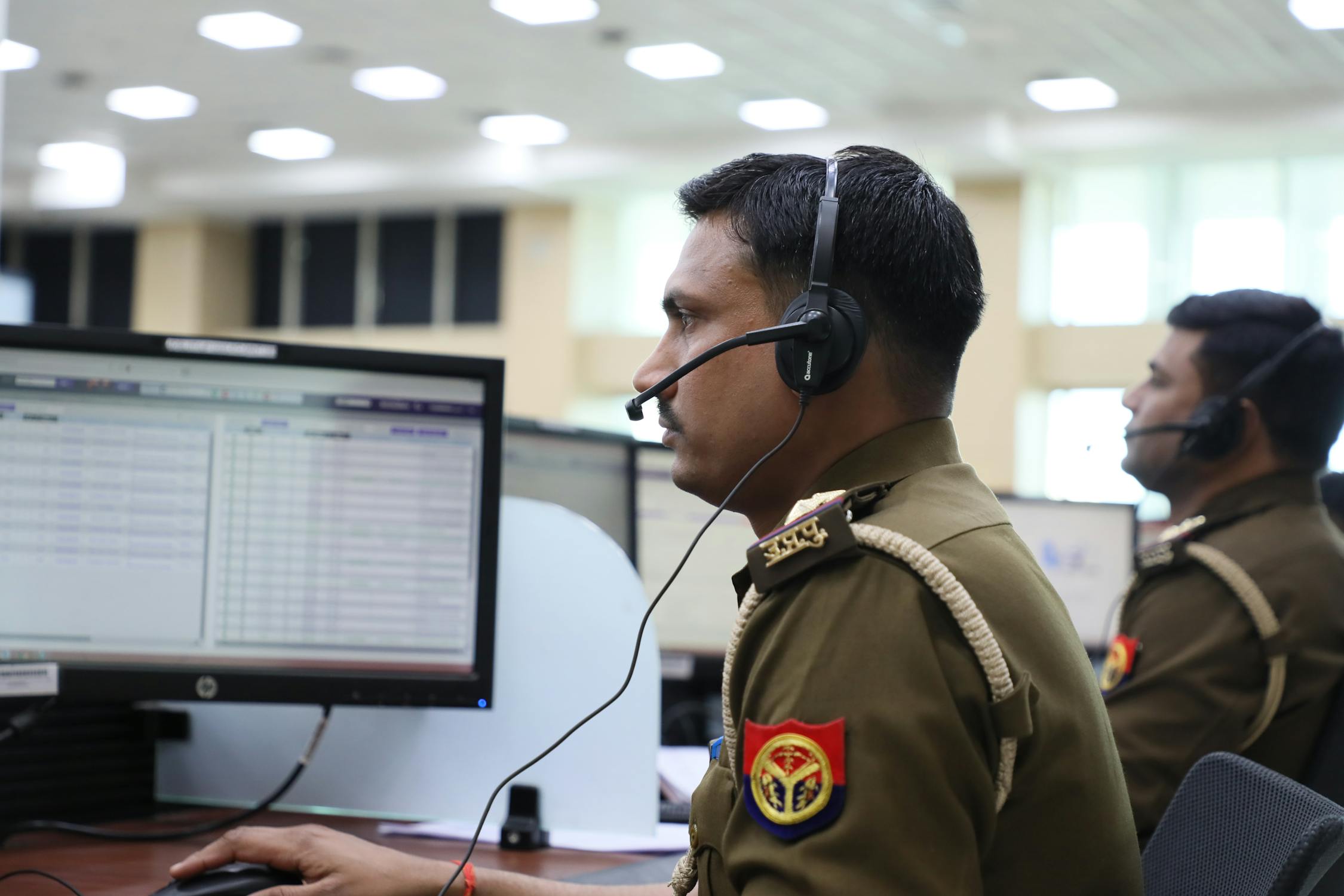Courts at the Crossroads: Defending Digital Rights Against Encryption Crackdowns in South Asia

The session titled “Courts at the Crossroads: Defending Digital Rights Against Encryption Crackdowns in South Asia” is part of the Global Encryption Day Summit 2024. Karthika Rajmohan moderates the session from the Internet Freedom Foundation, a New Delhi-based civil liberties organization. The discussion focuses on governmental efforts to curtail end-to-end encryption under the guise of national security and crime prevention.
A real case with a changed name to protect the victim’s privacy. Image by 112 Uttar Pradesh
The panel includes:
- Dr. Sanjana Hattotuwa, a disinformation expert at ICT4Peace Foundation.
- Ms. Vrinda Bhandari, an independent advocate litigating free speech and digital rights issues in India.
- Mr. Shahzeb Mahmood, a senior researcher at the Tech Global Institute.
- Ms. Farieha Aziz, co-founder of Bolo Bhi, a civil society organization focused on digital rights and civic responsibility.
- Mr. Santosh Sigdel, executive director of Digital Rights Nepal.
The session begins with opening statements from the panelists, who provide context on the situation in their respective countries regarding encryption crackdowns and government justifications. Dr. Hattotuwa discusses Sri Lanka’s legislative history and recent laws impacting digital rights. Ms. Bhandari talks about India’s IT rules and the challenges WhatsApp poses. Mr. Mahmood highlights Bangladesh’s surveillance and encryption issues. Ms. Aziz mentions the controversial judicial amendments in Pakistan.
Here’s a summary of the additional audio transcript you provided:
The discussion continues, focusing on Pakistan’s digital rights and encryption situation. The country has seen significant internet disruptions and the blocking of social media platforms like X (formerly Twitter) due to national security concerns and election-related disinformation. Critics accuse the government of using digital terrorism to justify these actions.
The Prevention of Electronic Crimes Act (PECA) of 2016 empowers the Telecommunications Authority to block websites and online platforms as needed. The social media rules under PECA require companies to have a local presence and comply with government requests, which has led to conflicts with platforms like X.
There are concerns about installing a national firewall and web monitoring systems, which could further restrict internet freedom. The lawful intercept management system, which allows for extensive surveillance, has been a point of contention, with the courts initially challenging its legality but later restoring it.
The discussion also touches on the use of metadata and the challenges local telecom operators and ISPs face in resisting government demands. Raids, arrests, and forced access to personal devices without warrants have raised significant privacy concerns.
Overall, the situation in Pakistan reflects a broader trend in South Asia of increasing government control over digital spaces and using national security to justify restricting digital rights.
In the final part of the discussion, the focus shifts to the challenges faced by online media and the proposed regulations that could impact press freedom. The government is introducing new guidelines and bills to regulate online media, which could affect digital journalism’s critical and robust nature.
The panelists highlight governments’ common justifications to crack down on end-to-end encryption, such as national security, public order, hate speech, fake news, and criminal investigations. They discuss how courts in different countries balance these concerns with the right to privacy and freedom of expression.
In India, public interest litigations frequently prompt court decisions that often overlook the technical implications for intermediaries. Courts usually adopt a hands-off stance when the government cites national security, making it difficult for individuals to challenge these claims. However, positive developments have occurred, such as the Bombay High Court striking down a government fact-check unit.
In Sri Lanka, the judiciary is under significant influence from the executive, making pushing back against arbitrary regulations challenging. The legal fraternity needs to gain awareness of modern digital issues, which hampers effective judicial review.
In Pakistan, the judiciary faces internal conflicts and external pressures, with some judges taking a more antagonistic view of social media. The courts have struggled to assert themselves against unqualified national security claims, and there are concerns about the restructuring of the judiciary potentially reversing gains in digital rights.
The discussion underscores South Asia’s complex interplay between government regulation, judicial oversight, and digital rights.
